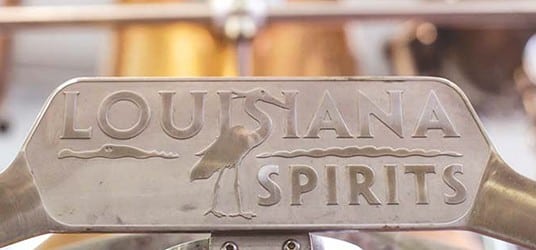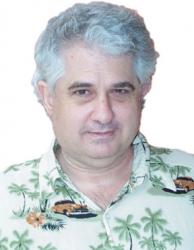With Louisiana Spirits, Two L.C. Brothers Revitalized The Country’s Handcrafted Rum Industry And Spawned An Unprecedented Business Opportunity
By Brad Goins
Brothers Trey and Tim Litel grew up in Lake Charles. They both graduated from Barbe and both went on to get degrees from LSU. After graduation, they left to pursue different career paths. But each holiday season, they reunited for hunting in Lacassine.
It was in a Lacassine hunting blind that the brothers first discussed a quandary that had been occupying Trey. Why, he wondered, wasn’t there a good rum in Louisiana when the state has so much sugar cane? Louisiana has more sugar cane than any Caribbean island. Yet it’s the islands that are famous for rum.
As the brothers pondered the matter, they started doing some research of the growing craft distillery movement in the U.S. The brothers, says Trey, began to “look into what’s involved in a distillery.” They “learned from craft distillery stores.”
They toured all the distilleries on the Bourbon Trail in Kentucky, the state that’s home to more than 40 bourbons and is known as the bourbon state. Why, the brothers wondered, couldn’t Louisiana become known as the rum state?
The end result of this exploratory process was a rum distillery the brothers built in Lacassine, right at Exit 48 on I-10. They got some big help from partner Skip Cortese, who, Trey says, “knows everything there is to know about a pipe, pump and tank.”
Most entrepreneurs encounter tremendous obstacles on their path to business success. And the three partners did have a few rough patches along the way. “We were laughing that it would have been a really good TV show,” says Trey. “We persevered.”
The hurdles might have been much greater than they were had it not been for the business background of brother Tim. While Trey had been working for Bacardi, learning the spirits business, Tim had begun his career employed by Sulphur-based company Allwaste. Tim and future partner Skip Cortese “worked together for years” at the company.
Eventually the two began to form their own industrial companies, creating as many as a dozen before they ever envisioned Louisiana Spirits. Especially known for their Speed Industrial Services companies (whose headquarters is another Sulphur-based operation), the two most often put together industrial systems designed to clean out containers that had been used to transport oil.
When it came time to create Louisiana Spirits, the two found it was “no different from our tank-cleaning facilities,” says Tim. Both kinds of operations used such basic components as piping, heating, boilers and other mechanisms that Tim and Skip were very familiar with. “Skip and I had done this so many times, we knew what we were doing,” says Tim.
Tim and Skip concentrated on the engineering and fabrication of the Louisiana Spirits distillery. The capital they’d accrued from previous business creations eased the financial burdens involved with the creation of a new business.
Getting The State On Board
In the start-up process, the brothers learned a great deal about distilleries and how they worked. They also learned about state legislation and the Legislature. They realized that in addition to building heaters and boilers, they’d have to build a new law.
“The state has been very good to us,” says Trey. He says this primarily because the state was quite helpful in changing a Louisiana law that would have prevented the Louisiana Spirits distillery — or any distillery in the state — from selling its products on the site of the distillery.
The brothers started by getting to know state Sen. Blake Morris, who represents Jeff Davis Parish. Morris introduced them to Troy Hebert, commissioner of the Louisiana Office of Alcohol and Tobacco Control. And Hebert introduced the brothers to industry leaders who were likely to support a bill relaxing the old state law.
Senate Bill 64 passed in 2012 without one vote in opposition. Louisiana distilleries could now sell their products at the distillery.
“We drove this law and change in behalf of the [distillery] industry,” says Trey. He believes in what he calls the “three-tier system.” These tiers are wholesaler, retailer and manufacturer. Take away the manufacturer’s ability to sell at the site of manufacture and you may take away his ability to thrive.
Trey argues that winemakers and beer brewers have long been able to sell their products from the site of manufacture. “Why can’t a distillery do it?” he asks.
Opportunity Knocks — And Loud
With the law now on their side, the partners could have done what many entrepreneurs do and worry about whether they’d taken on too risky a proposition. But there doesn’t seem to have been too much hand-wringing on this account.
“We don’t believe it’s a risk at all,” says Trey. He sounds confident in general, and certainly has confidence in the distillery’s products in particular.
Since July 1, Republican National has been selling the Louisiana Spirits products in Louisiana. The first week of sales bore out Trey’s feeling that this wasn’t a risky business, and did so in a way that was almost unbelievable. In the first week of sales, the distributor got 681 new accounts for the product. In fact, you may be seeing Louisiana Spirits products on Tobacco Plus shelves in this area by the time you read this story.
The burst of success may have been something of a surprise for brother Tim, who had, in fact, thought the distillery would “actually [be] a pretty small venture” in comparison to the industrial businesses he’d helped start up. “Nobody was really making rum in the U.S.,” he says. Now, thinks Tim, “it’s grown into a national opportunity.”
Part of the brothers’ learning process before the start-up of Louisiana Spirits was the discovery of the business limitations many craft distilleries bump up against. Often such distilleries produce a total of 4,000 to 5,000 cases of product a year. “Can they make a living?” with that amount of product, Tim asks. The problem, he says, was that “they sold about all the product they can make and they can’t stop” making product in order to bring about the necessary expansions to be able to make more product.
To avoid this sort of situation, the brothers are presently doubling the size of their warehouse (from 12,000 to 24,000 square feet). Tim believes Louisiana Spirits could produce close to 100,000 cases a year with its present facilities. The business, he says, aims to make “the transition from a craft distributor to a mainstream distributor,” with the hope of eventually producing more than 200,000 cases a year.
Why Buy Handcraft Rum?
There will always be a taste factor in the success story of a craft distillery. “A handcraft rum is better than an industrial rum,” says Trey. It just tastes better. It’s that simple.
But many consumers are involved in the movement because they feel that by buying local or regional products, they’re supporting local workers and business, and, in particular, local agriculture.
“We support sugar cane farmers [in Louisiana] and people who work in mills,” says Trey. He says he hopes the distillery will create new opportunities for local agriculture and Louisiana sales reps and new Louisiana jobs “for people who work for us.” Louisiana rum will also generate tax revenue for the state.
“You’re supporting your local farmers,” says Trey. “You’re drinking a product that’s made in Louisiana.”
A Green Rum?
Another user-friendly aspect of Louisiana Spirits’ handcraft rums is that they’re made in a green manner. Tim’s academic background is in environmental studies, and in particular, in compliance. With this knowledge and his experience in cleaning containers, he and Skip have “designed a zero-discharge area” at the distillery.
The partners have invested half a million dollars in a machine that evaporates material from the still that would otherwise have been discharged. The material that remains is molasses-based. All this material is recycled into a feed that’s given to animals. There’s no discharge; no waste.
The Big Story
We’ve seen there are several interesting business stories and twists in the short history of Louisiana Spirits. But the big story here is, of course, the rum.
One of the greatest pleasures of running a craft rum distillery must surely be the power to create new flavors of rum — in Louisiana Spirits’ case, such flavors as Silver Bayou Rum and Spiced Bayou Rum.
Part of the marketing strategy at Louisiana Spirits is to convince serious drinkers who aren’t inclined to rum to consider trying a Louisiana Spirits rum that might have some of the characteristics of what they’re used to drinking.
For instance, whiskey is aged in oak barrels. These provide the dark, smoky, woody bite that whiskey drinkers enjoy. The Spiced Bayou Rum is aged in whiskey barrels in a very similar manner to that used for whiskey. Whiskey lovers might want to give it a try.
Likewise, drinkers who prefer vodka seek a cleaner, lighter taste than the one provided by whiskey. They could discover an affinity in Louisiana Spirits’ Silver Bayou Rum.
The Story Goes On
How do the brothers feel about their new distillery now that success seems to be almost a forgone conclusion? “I’m glad to be home,” says Tim. Although he lives primarily in Baton Rouge, Tim commutes three or four times a week to Lacassine, which, he points out, is only 18 miles from Lake Charles, where his mother still lives.
Trey, ever-sensitive to the marketing aspect of the business, sends this message to the Lake Area: “Taste the spirit of Louisiana!” And he has one more message: “Go Bucs!”
And yes, the brothers still meet every holiday season to go hunting in Lacassine.



















Comments are closed.